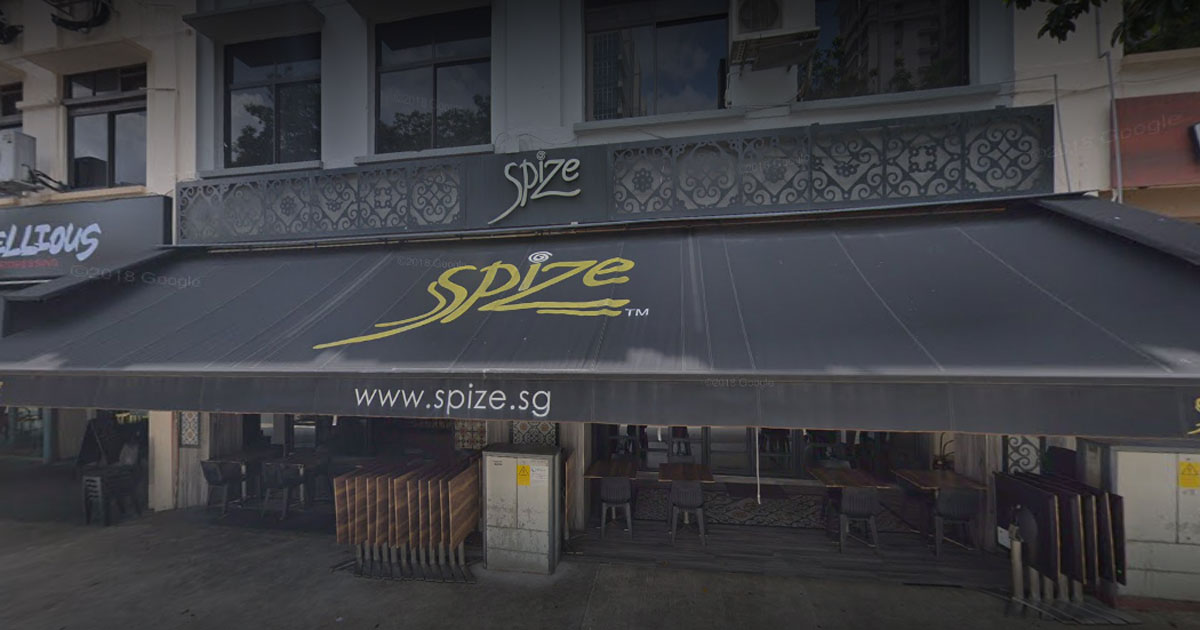Following news that Spize at River Valley has been shut down by the authorities in Singapore for good, more details about the sort of food contamination that led to a mass food poisoning that left one person dead has been revealed.
Faecal bacteria
One of the most shocking facts uncovered was that bacteria found in faeces was discovered in the outlet's belacan egg fried rice, a chopping board and knife used for ready-to-eat food.
Known as faecal coliforms, the bacteria is found in faeces belonging to humans and animals.
The presence of such bacteria indicates a high risk of other harmful pathogens, even though faecal coliforms may not be immediately harmful.
The authorities also clarified that rats were not the cause of the outbreak.
Six different pathogens
In total, six different types of pathogens were detected from food samples, food handlers and the restaurant.
Three types of pathogens were found in the belacan egg fried rice alone.
The other pathogens are:
Salmonella typhimurium and Salmonella albany
Salmonella has been identified as the main cause of illness among those who ingested food from the Spize outlet.
Salmonella typhimurium was found in multiple places: In belacan egg fried rice, raw chicken samples, kang kong, a door handle leading to a cold room and on a cold room rack.
Salmonella albany was detected in sambal belacan.
Bacillus cereus
Frequently found in fried rice, this bacteria is stimulated to reproduce due to the heat from cooking.
Leaving the food at room temperatures allows the bacteria to incubate.
Norovirus
One food handler tested positive for norovirus, which is known to be highly contagious and spreads in close quarters.
Campylobacter jejuni
This can be found in raw and under-cooked poultry, unpasteurised milk, and contaminated water.
It is also commonly found in animal faeces.
One food handler tested positive for Campylobacter jejuni.
Did not discard food flagged for disposal
Another shocking finding was the disregard for rules after the Spize River Valley outlet was suspended initially.
The litany of offences uncovered included not discarding food that had been flagged for disposal, as orders were given to do so on Nov. 9 to throw away all food items.
Dried salted fish, chicken floss and fish crackers were supposed to be discarded after its licence was suspended, but that was not done.
Eggs that were meant to be discarded were dispatched to another Spize outlet at Temasek Club for use.
Would be taken to court
The findings were revealed on Friday, Dec. 7, by the Ministry of Health (MOH), National Environment Agency (NEA) and Agri-Food and Veterinary Authority of Singapore (AVA).
The announcement that Spize at River Valley will be closed for good was also made that day.
The joint statement said there was strong evidence of severe contamination from poor hygiene and food handling practices.
At a press conference, NEA slammed the food hygiene lapses as “unbecoming”.
NEA’s director-general for environmental public health Derek Ho told reporters that the authorities were “very angry... very upset with the way things are being done right now”.
He also stressed that the authorities took a very “tough stance” on the matter.
Ho even told reporters the owners of Spize will be taken to court, but did not give further details.
"We'll be sending them to court," he said.
"The intent is to press as many charges as we can against them for all the various offences that we have observed."
"(Their other outlets) are in our crosshairs now and we will keep a close watch on them."
A total of 82 people fell ill, 47 of whom were hospitalised.
Out of all those who fell ill, 36 people tested positive for salmonella.
One person has died.
If you like what you read, follow us on Facebook, Instagram, Twitter and Telegram to get the latest updates.
